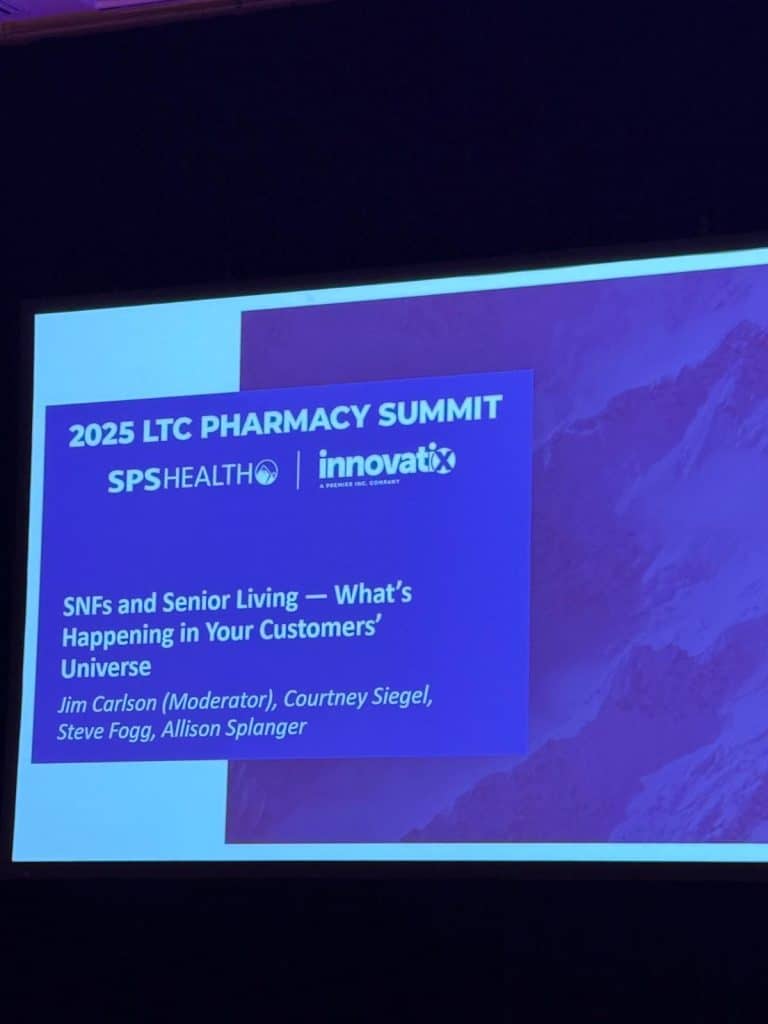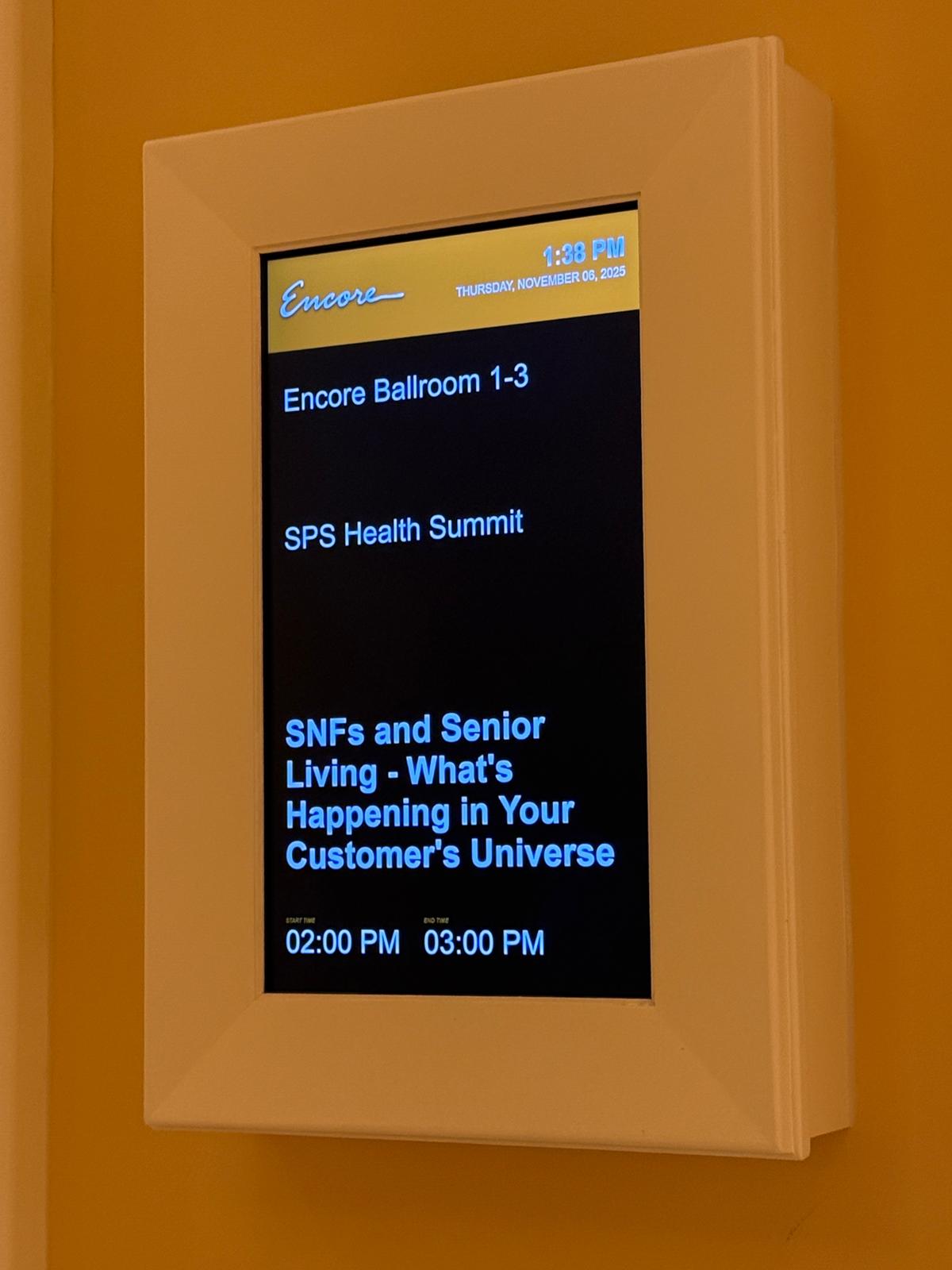
Senior care evidence-based insights are transforming how we approach aging, cognition, and longevity. By integrating biology, epigenetics, mental health, and lifestyle interventions, clinicians can now move beyond reactive treatment to proactive, measurable strategies. This approach ensures seniors maintain clarity, independence, and emotional well-being while optimizing brain and overall health.
I recently attended the 2025 LTC Pharmacy Summit in Las Vegas, and the message across every session was unmistakable: senior care is shifting from reactive treatment to proactive, measurable, brain- and longevity-focused care. What we used to consider “normal aging” is now understood as a dynamic, modifiable process shaped by biology, environment, medication exposure, and mental health.
Below are the most clinically relevant, evidence-based insights shaping the next decade of aging and long-term care.
Biological Age Now Outperforms Chronological Age in Predicting Cognitive Decline
One major theme was the rise of biological age testing. Presenters highlighted ELOVL2 methylation markers—now measurable through simple saliva samples—as a strong predictor of brain aging and cognitive decline. Research consistently shows that epigenetic age acceleration correlates with memory impairment, executive dysfunction, and all-cause mortality more accurately than chronological age.
This shift is transforming how clinicians assess risk and intervene earlier with targeted lifestyle, sleep, and mental health strategies.
Polypharmacy Remains a Critical Threat to Senior Health
Polypharmacy was one of the most discussed clinical issues. With seniors commonly prescribed 8–12 medications daily, the data presented at the Summit emphasized the consequences: higher hospitalization rates, delirium, falls, and worsening cognitive function.
Studies shared demonstrated that deprescribing initiatives lead to meaningful improvements in stability, mood, sleep, and functional outcomes. The future of safe senior care hinges not on adding more medications, but on refining and reducing unnecessary treatment burdens.
Loneliness Is Now Recognized as a Major Medical Risk Factor
Multiple talks underscored that social isolation is not merely a psychosocial issue—it is a clinical one. Research cited aligns with CDC and NASEM findings that loneliness increases mortality risk by nearly 30% and carries cardiovascular risk comparable to smoking or obesity.
Its impact on cognitive decline was a key focus, with strong evidence showing that isolation accelerates memory loss, depression, and functional deterioration. Senior mental health cannot be addressed without acknowledging the biological impact of isolation.
Sleep Quality Has Emerged as a Core Biomarker of Healthy Aging
Sleep science played a significant role at the Summit. Poor sleep is now directly linked to faster cognitive decline, elevated inflammation, metabolic dysregulation, and mood instability in older adults.
Presenters emphasized the importance of assessing sleep as rigorously as blood pressure or glucose levels. Sleep has become a fundamental pillar in slowing biological aging and supporting emotional resilience.
Daily Engagement and Purpose Improve Cognitive and Emotional Outcomes
A compelling body of evidence was shared around structured engagement in senior living communities. Studies demonstrated that seniors who maintain daily routines, social interaction, and purposeful activities show measurable improvements in memory, executive function, emotional regulation, and sleep.
Purpose and cognitive stimulation are not soft wellness concepts—they are biological interventions that protect the brain.

Encore Ballroom 1-3
SPS Health Summit
SNFs and Senior Living – What’s Happening in Your Customer’s Universe.
Technology Is Redefining Senior Mental Health and Longevity Care
The Summit showcased the rapid integration of technology into senior care: saliva-based epigenetic panels, remote cognitive tracking tools, AI-supported medication reviews, and wearable systems that monitor sleep, stress, and recovery.
These tools are shifting care from reactive to predictive, supplying clinicians with data that supports early intervention and personalized treatment plans.
What This Means for the Future of Aging
The science presented at the Summit reinforces a major shift: aging is modifiable, measurable, and deeply connected to mental health, sleep, engagement, and epigenetic biology.
At Future Psychiatry, this is the foundation of our work—integrating precision diagnostics, longevity science, and mental health care to help seniors age with clarity, independence, and dignity.
The future of senior care is not defined by more medication, but by better data, targeted interventions, and deeper support for the mind.
Ready for care that fits you?
Book a 15-minute discovery call →

Future Psychiatry is a concierge practice in New York City specializing in integrative psychiatry, anxiety treatment, and holistic mental health. Founded by Jafar Novruzov, PMHNP-BC, the clinic provides luxury, evidence-based psychiatric care designed for long-term wellness.
